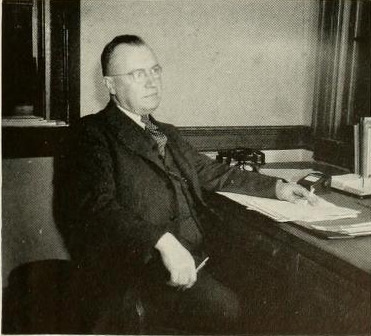Department History

When Alexander Heard was recruited to Chapel Hill in 1950, his first initiative was to organize a Political Behavior Committee within the Institute. This introduced to the Department a new focus on American political behavior and attracted to Chapel Hill two major voices in this area: Donald R. Matthews and James W. Prothro. By this time, Federico Gil had joined the faculty, and in 1959 he would become the director of the inter-departmental Institute of Latin American Studies, which was on the way to becoming one of the nation’s principal centers for research on Latin America. As Heard moved into university administration, Matthews and Prothro assumed the leadership of the program in American Politics and, along with the then Chair, Frederick Cleaveland, became the intellectual leaders of the department.
With the help of Hubert Blalock in the Sociology Department, this “Princeton Mafia” introduced state of the art methodological training for doctoral students which was quickly recognized as a national model and immediately made our strongest students competitors for the appointments in the leading political science departments. Furthermore, Charles Robson’s devotion to integrating theory with empirical research restructured the graduate program around our current pattern of core courses, each of which, according to an early planning document, was to focus on “theory as the central core of professional training in political science and the integrating body of skills and knowledge around which all students must build their doctoral programs.”
Financial support for these efforts was provided by a very substantial “Center of Excellence Grant” from the National Science Foundation, and others from the National Institutes of Health, the National Defense Education Act, and the Ford and Rockefeller Foundations supported fellowships, data collections and research programs, most of it under the auspices of the Institute for Research in Social Science and its Social Science Statistical Laboratory. These grants were also used for faculty recruitment and development, and graduate student research in American Politics and Comparative Politics, with particular foci on Latin America and Europe. The Department’s Latin American work was further enhanced through new connections with FLASCO, the Latin America Faculty of Social Sciences of Santiago, Chile, while its European work was facilitated through generous seed money for research projects and travel to European countries.
The foundations of the contemporary department were laid during the transformational decade of the 1960s. Its principal research pillars were American political behavior and comparative politics, particularly Latin America and Europe. The 1970s was a period of growth and consolidation, while further growth and this time diversification occurred during the 1980s.
Other important trends emerged beginning in the 1990s. One was an increasing number of department faculty in American and Comparative Politics, which extended the department’s research programs to reach across world regions. A second trend has been an increased focus on formal and statistical methods through faculty hires and the establishment of a graduate sub-field in Methodology. Next, important research and teaching centers have been invigorated or established in Latin American Studies, European Studies, and Slavic and East European Studies, with department faculty playing prominent leadership roles. Finally, there has been increased collaboration in these areas with Duke University, which has strengthened both departments. In the same vein, the American fields on both campuses have collaborated productively in methodological and introductory graduate training and in the American Politics and Research Group (APRG).
Research is the core element of our endeavor and the foundation for our teaching and public service. As the University’s mission statement declares: “The University is a research university. Fundamental to this designation is a faculty actively involved in research, scholarship, and creative work, whose teaching is transformed by discovery and whose service is informed by current knowledge.” The Department’s research mission is central to our work because our research undergirds the performance of the other components of the departmental mission, infusing instruction with vitality and serving the broader community and the profession.

